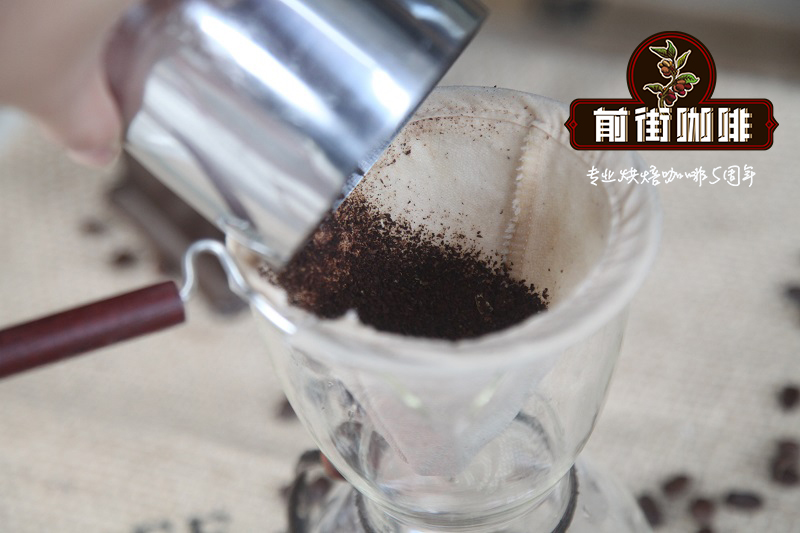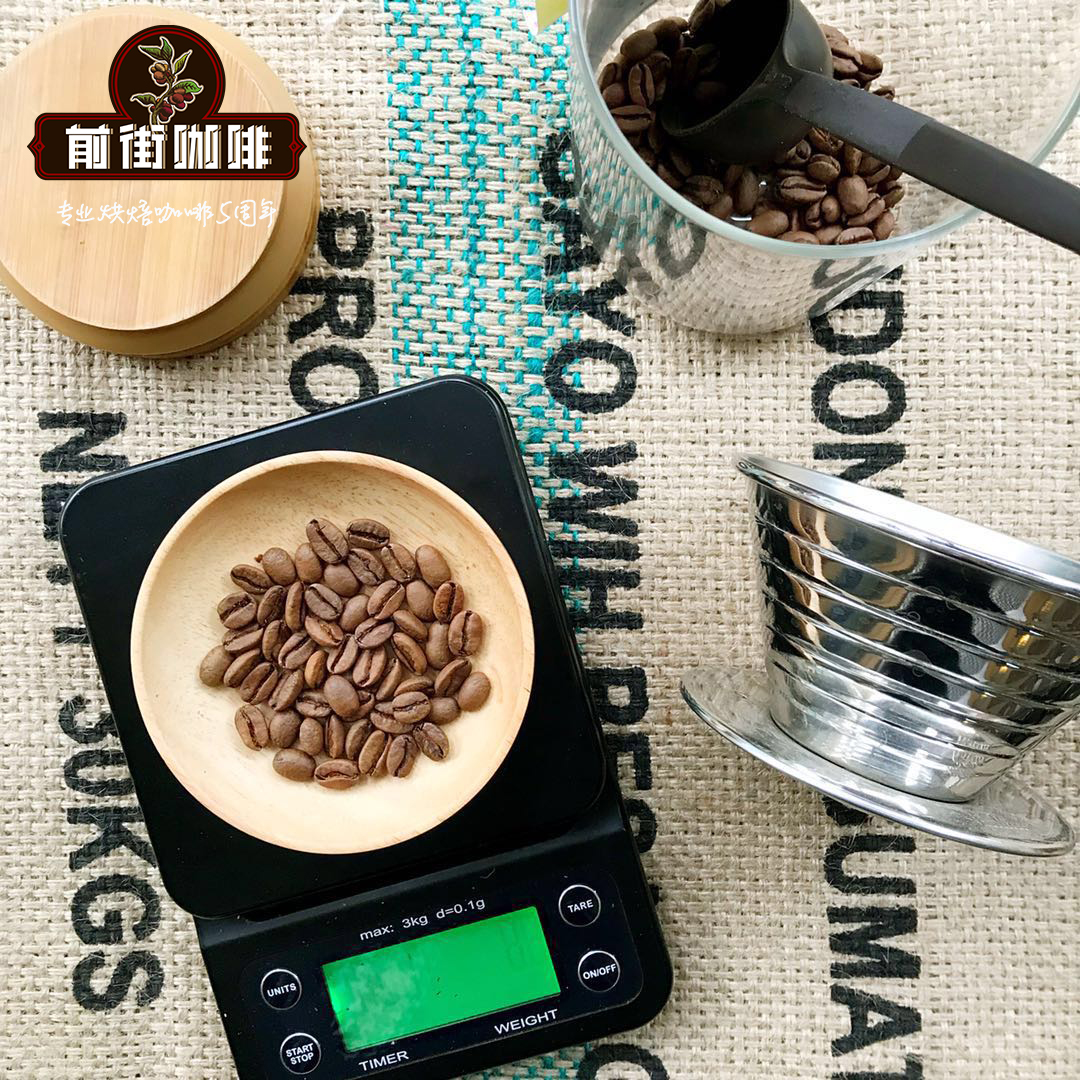What is Yemeni mocha coffee? Why is Yemeni mocha coffee so old?
Professional coffee knowledge exchange more coffee bean information please follow the coffee workshop (Wechat official account cafe_style)

Mocha coffee is the "oldest" coffee in the world, and its taste is consistent with antiquity and mellowness. Mocha coffee with a long history is synonymous with coffee. Its unique aroma and sour taste have attracted many coffee lovers.
Some people say that in coffee, Blue Mountain can be king and mocha can be called queen. Mocha coffee has the most unique, richest and most fascinating complex smell in the world: red wine, wild game, dried fruit, blueberries, grapes, cinnamon, tobacco, sweet spices, log, and even chocolate. Mocha coffee has a special taste and varied levels, like a woman's mood. When you taste it slowly, the feelings you can experience will not be repeated and change constantly. The more you taste, the more you drink a glass of red wine. Someone once said that if Mexican coffee can be compared to dry white wine, then Yemeni mocha is Bordeaux wine.
In his most authoritative book, Coffee World, historian Uks wrote: "for many years, Yemeni mocha coffee has been considered to be the best coffee available to people in the world. It is unique, fragrant and sour. At the same time, it has a distinctive spicy taste." The Yemeni mocha has distinct taste characteristics, it has a strong sour taste, and it has an obvious chocolate taste, the stronger the coffee, the easier it is to taste the chocolate. Naturally, adding hot chocolate to the coffee to make fancy mocha coffee will make people more aware of the unique taste of mocha.
Yemen is the first country in the world to produce coffee on a large scale as a crop. Today, Yemeni coffee farmers still produce coffee in the same way as they did 500 years ago. Some coffee farmers still use animals (such as camels and donkeys) as a source of stone grinding power, compared with those Central and South American countries that use advanced machinery and equipment to deal with coffee beans in large quantities, and even Kenya, which has a short history of coffee. Yemen Mocha is the only living monument in the coffee world! So the Yemeni mocha you drink today is basically not much different from the "Arabian coffee" enjoyed by aristocratic European businessmen hundreds of years ago in Europe's oldest cafe in Piazza San Marco in Venice, Italy.
The Yemeni mocha is the originator of the world coffee trade and plays an important role in promoting delicious coffee all over the world. In the 17th century, the Yemeni mocha, known as "Arabia" (the origin of the later "Arabica species"), drifted across the ocean to European Catholic countries such as Italy, and for more than 150 years, Yemeni coffee has been the only coffee producer sold to Europe.
In ancient times, in conservative Catholic countries, extraordinarily good things were often considered evil, and coffee was once burdened with inexplicable evil. It was not until the Vatican Pope, who also loved coffee, announced that coffee was a Catholic drink and blessed coffee drinkers that coffee began to spread widely in Europe. Although Ethiopia was the first country in the world to discover coffee, it was Yemen that carried it forward. Today, there are still traces of coffee on the national emblem of Yemen. The national emblem of Yemen consists of an eagle and a national flag. The eagle symbolizes power, and the shield on its chest is painted with the famous monument Malibu Dam and coffee trees. The words "Republic of Yemen" are written on the ribbon in Arabic.
The price of Yemeni coffee in the international market has not been low, mainly because Yemeni coffee is very popular in countries and regions where "Turkish" coffee is popular. In Saudi Arabia, the Yemeni mocha is so spoiled that people there are willing to pay a high price for low-quality mocha coffee. This special fondness for mocha keeps the price of mocha coffee high in the world coffee market.
Today, mocha coffee has long been familiar to people, but how many people know that ships came to the bustling port before the 18th century and today's "mocha" will have such an origin.

Important Notice :
前街咖啡 FrontStreet Coffee has moved to new addredd:
FrontStreet Coffee Address: 315,Donghua East Road,GuangZhou
Tel:020 38364473
- Prev

Why is Yemen producing so little coffee? What are the flavor characteristics of Yemeni coffee?
Professional coffee knowledge exchange More coffee bean information Please pay attention to coffee workshop (Weixin Official Accounts cafe_style) Yemen is located in West Asia, only one step away from the African continent. Coffee would still be a wild plant in Ethiopia if it were not for the Islamic priests who popularized it in Arabia. Coffee is said to have been introduced during Ethiopian rule in the sixth century and to have been
- Next

Yemeni coffee rare varieties Yemeni coffee Udaini Udaini is what Yemeni coffee beans characteristics
Professional coffee knowledge exchange More coffee bean information Please pay attention to coffee workshop (Weixin Official Accounts cafe_style) Yemeni coffee Our common varieties and those sold on the market only see mocha, but rarely hear Udine, so today we will talk about what Udine is! Udaini: The main varieties of Yemeni coffee are ancient/spread precisely because of this collective name
Related
- Detailed explanation of Jadeite planting Land in Panamanian Jadeite Manor introduction to the grading system of Jadeite competitive bidding, Red bid, Green bid and Rose Summer
- Story of Coffee planting in Brenka region of Costa Rica Stonehenge Manor anaerobic heavy honey treatment of flavor mouth
- What's on the barrel of Blue Mountain Coffee beans?
- Can American coffee also pull flowers? How to use hot American style to pull out a good-looking pattern?
- Can you make a cold extract with coffee beans? What is the right proportion for cold-extracted coffee formula?
- Indonesian PWN Gold Mandrine Coffee Origin Features Flavor How to Chong? Mandolin coffee is American.
- A brief introduction to the flavor characteristics of Brazilian yellow bourbon coffee beans
- What is the effect of different water quality on the flavor of cold-extracted coffee? What kind of water is best for brewing coffee?
- Why do you think of Rose Summer whenever you mention Panamanian coffee?
- Introduction to the characteristics of authentic blue mountain coffee bean producing areas? What is the CIB Coffee Authority in Jamaica?

